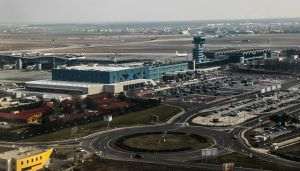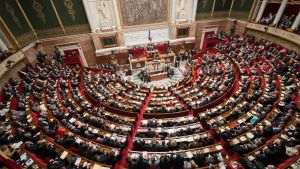Turkey has formally applied to join the BRICS group of emerging nations, seeking to strengthen its global influence and forge new ties beyond its traditional Western allies, according to sources cited by Bloomberg.
The view of President Recep Tayyip Erdogan's administration is that the geopolitical center of gravity is shifting away from developed economies, according to Bloomberg sources, who note that the country's new diplomatic push reflects its aspirations to cultivate ties with all parties in a multipolar world, while fulfills obligations as a key member of the North Atlantic Treaty Organization (NATO).
This clarification made by the cited sources gives birth to the prohibitive doubt about Turkey's intentions after becoming a member of BRICS: will it remain a member of NATO or will it leave the Alliance? This latter possibility will be able to be used diplomatically by Turkey in relations with NATO member states, waving the specter of delivering to Russia the strategic role it plays in the region.
Sandwiched between Europe and Asia, Turkey applied to join BRICS a few months ago amid growing frustration over the lack of progress in its decades-long bid to join the European Union, the sources said. In their opinion, the request is partly the result of differences with some fellow NATO members, after Turkey maintained close ties with Russia following Moscow's invasion of Ukraine.
The Ministry of Foreign Affairs and the Presidency of Turkey refused to comment on the information published by Bloomberg.
"Turkey can become a strong, prosperous, prestigious and efficient country if it improves its relations with the East and the West simultaneously," Erdogan said in Istanbul over the weekend, adding: "Any other method than this will not benefit Turkey, but it will harm".
The BRICS grouping, which brings together Brazil, Russia, India, China and South Africa, includes some of the largest emerging economies. It received four new members at the beginning of 2024, namely Iran, the United Arab Emirates, Ethiopia and Egypt. Saudi Arabia has been invited to join, but the kingdom has not yet joined.
Further expansion of the group could be discussed at a summit in Kazan, Russia, scheduled for October 22-24, the sources cited by Bloomberg said. Malaysia, Thailand and Turkey's close ally Azerbaijan are among other countries looking to join the group.
BRICS presents itself as an alternative to institutions dominated by the West, such as the World Bank and the International Monetary Fund (IMF). New members can access financing through its development bank and expand their political and commercial relationships.
Erdogan's ruling Justice and Development Party has long accused Western nations of thwarting Turkey's aspirations for a self-sufficient defense industry and a strong economy. The president has repeatedly called for a review of the United Nations Security Council to expand the five permanent members and has expressed interest in joining the Shanghai Cooperation Organization, set up by Russia and China as a rival to NATO.
"We don't have to choose between the European Union and the Shanghai Cooperation Organization, as some claim," Erdogan said, stressing: "On the contrary, we have to develop our relations both with them and with other organizations on a win-win basis." reciprocal".
The BRICS expansion has been largely led by China, which is trying to increase its global influence by "courting" nations traditionally allied with the US.
Turkey has been in talks to join the EU since 2005, but has faced a number of obstacles, including what the European bloc describes as the country's democratic shortcomings.
Turkey believes that joining BRICS could help the country improve economic cooperation with Russia and China and become a trade channel between the EU and Asia. At the same time, it wants to be a hub for gas exports from Russia and Central Asia, sources quoted by Bloomberg said.
The Erdogan administration has tried to attract investment from Chinese electric car makers, who could take advantage of Turkey's customs union with the EU to increase their market access. "BRICS is an organization that increases the diversity of approaches, identities and policies in the global economic system," said Turkey's Foreign Minister, Hakan Fidan, after attending a meeting of BRICS foreign ministers in June.
However, Turkey is making parallel efforts to revive the accession talks with the EU. This remains "a strategic target", Fidan said last week, after participating in informal talks with EU counterparts for the first time in five years.


























































